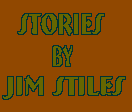

LIVING IN FEAR IN THE USA
Michael Brohm’s cover story and portrait collection of "Yesterday’s Enemies" stirred Cold War memories of my own. Like my old pal Michael and other fellow Baby Boomers, I grew up under the shadow of nuclear obliteration. And yet, though the threat hovered on a grander scale, it didn’t seem nearly as ominous as the world feels today.
But going back in time a few decades, I still remember the morning our neighbors began building a fallout shelter and I asked my dad if we planned to have one of our own. He tried to explain, as gently as possible, that a fallout shelter would not offer much protection if we received a direct hit. Since Louisville, Kentucky was home to nearby Fort Knox, major Ford and General Electric assembly plants and adjacent to a significant dam on the Ohio River, we were almost certain to be a "prime target." Even then, I understood the power of a hydrogen bomb and quickly got his point.
Still, the idea that such insanity might actually occur seemed impossible and, in fact, thinking of nuclear war was as fantastic as some of the "Twilight Zone" episodes my family gathered to watch every Friday night with a bowl of popcorn and two RC Colas. The threat hung over us like a science fiction movie. We participated in "disaster drills" at school, and saw the fallout shelter signs that dotted the city, and listened to Khruschev pound his shoe on a table at the United Nations, but only once did the fear come close to home.
For 13 days in October, during the second year of John Kennedy’s presidency, the United States and the Soviet Union almost went to war over missiles in Cuba and I vaguely sensed the gravity of the crisis. On the night Kennedy addressed the nation on television and announced a blockade of Cuba, I was playing in the basement with my friend Stat Geer—my mother called us upstairs to watch the president. "You should see this," she said. "This is important."
As the two superpowers inched toward total war, everything changed. Before, the Cold War had been something I watched or heard about; now we had become a part of it. My father, not a man to be swept up by hysteria, was concerned enough to assemble a box of emergency supplies—canned goods, matches, flashlight—and kept them next to the back door. I saw a map of Jefferson County sprawled across the kitchen table; on it my dad had highlighted a route from our home into the country. It was our escape route.
For the next few days, I measured the threat level by the proximity of that box to the trunk of our car. My parents shifted it several times. Finally, they removed the contents and threw out the box. The crisis was over. It’s the only time I recall being scared during those Cold War years.
In 2007, it’s as if we’re scared all the time. And not just by the threat of another 9/11 terror attack. We’re taught to be afraid of everything. We are bombarded daily with a never ending list of threats to our health, safety and well-being. We sit in front of the television, we surf the web for more signs of our imminent demise, we scan the papers for something else to worry about. The search doesn’t take long....consider these offerings:
Citizens in rural Colorado see "dark-complected people with a Middle Eastern appearance" and call the authorities. They ask, "Should we contact the FBI?" Commercial airliners consider multi-million dollar "counter measures" to deal with surface-to-air missile threats. A regional power outage immediately causes panic from citizens who think it’s a terror attack. The Australian spy agency warns us of "catastrophic biological and chemical attacks." It says, "It’s only a matter of time." Vice President Cheney says another 9/11 is "only a matter of time." The Homeland Security Director says another 9/11 is "only a matter of time." The FBI director says another 9/11 is "only a matter of time."
The US Postal Service announces a plan to create "smart stamps" to track the identity of suspicious persons. The president of British Airways comments that the recent ban on liquids in carry-on luggage confirm’s America’s dedication to wage war on terrorist-laden toiletries. The recent e coli outbreak in spinach prompts a warning from the government regarding the threat of "agro-terrorism."
And as the national media aims its laser focus on the poisoned spinach, it is rarely noted that of the millions of consumers who bought and ate Popeye’s favorite veggie, about 200 became ill and (as of press day) two died. Better odds than lightning, I’d bet.
There are, of course, other ailments to fret over and a plethora of medications to cure us. Just watch the network news commercials to find out what’s right for you. Activia will take care of the bloating and Viagra and Cialus will keep us guys firm when we want to be and there are more meds than stars in the sky for cholesterol and high blood pressure. Sometimes the ads don’t even tell us what the product cures..."Do you need Crestor? Ask your doctor!"
Witness the discovery of new illnesses and ailments we never knew were maladies in the first place. Chronic Dry Eye Disorder requires a dose of Rastasis. What about Restless Leg Syndrome? You can get a pill for that too. And did you know that Americans are developing a serious addiction to their Blackberries? Not the fruit. The handheld embellished cell phone. Blackberry victims are seeking professional help. Really.
ABC’s "World News Tonight" spent two evenings warning us of the risk of heartburn. Now every time I burp, I have a panic attack. But don’t worry, there’s a med for that too.
A father boosts his son onto his shoulders and the boy gets whacked by a ceiling fan. Is it time to recall ceiling fans?
A few years ago we learned that terrorists in Iraq were building roadside bombs to kill American troops. They called them "Improvised Explosive Devices" or IEDs. But recently the medical world grabbed those very same letters to describe another ailment. IED also means "Intermittent Explosive Disorder." More medication please! My dad used to call it a temper tantrum and had his own effective ways of curing me. And consider "Celebrity Worship Disorder (CWD) and "Sweaty Palm Syndrome" (SPS)
It doesn’t stop...an airline pilot is arrested and fired when he makes a wisecrack about a shoe bomb. An 11 year old is expelled from school for a year when he brings a plastic toy gun to school. And a six year old is suspended for a week for bringing a two inch pink squirt gun to class. A SIX year old.
And finally, the threat of an allergic reaction to peanuts has all but eliminated them as a mid-flight snack on commercial flights. But don’t worry, an allergen-free peanut is being developed and may be available in the near future. Peanuts may return to flight-status after all—until terrorists find a way to conceal high explosives in nuts. And then the fear of peanuts will rise up all over again.
Webster’s says "fear" is "painful agitation in the presence or anticipation of danger." But haven’t we come to anticipate perceived dangers so obsessively that we’ve forgotten the joy of living? Doesn’t there come a time when we need to acknowledge that being alive carries an element of risk, no matter how hard we try to avoid it?
At the height of the Cold War, even President Eisenhower said, "We must be vigilant, but we needn’t be hysterical." Ike was right. Enjoy yourselves. Life’s too short.
WHEN JFK CAME TO SALT LAKE CITY..
OR HOW UTAH HELPED END THE COLD WAR
When I see President Bush address a crowd of people, we can all be sure the audience was screened and re-screened before they ever got inside the venue. President Bush doesn’t handle dissent too well these days, though to be fair, I’d bet the next Democratic president takes the same way out. Facing a hostile crowd, acknowledging and confronting an opposing opinion, has become an antiquated notion for many, when in fact, it’s an essential part of the decision-making process. President John F. Kennedy understood that better than most.
In the wake of the Cuban Missile Crisis, Kennedy was determined to ease tensions between East and West. Both he and Khruschev knew they’d come within a hair’s breadth of a total nuclear war that could have killed hundreds of millions of people in both countries. Kennedy and Khruschev wrote long and emotional letters to each other over the next few months and Kennedy, each expressing their own fears and worries for the future.
In the summer of 1963, the two leaders proposed a nuclear test ban treaty that would forever end above-ground nuclear explosions. It was a small step for both countries but an important one. But Kennedy knew he could not hope to easily reverse the Cold War mentality of most Americans. "Peace through Strength" was the Air Force motto and who could argue with that? To cooperate with our enemy was to appease our enemy—that could only lead to disaster.
Kennedy had to change that mindset. He decided to make his case in the most conservative state in America—and he did it in the Mormon Tabernacle in Salt Lake City.
Here are some excerpts:
I know that many of you in this State and other States sometimes wonder where we are going and why the United States should be so involved in so many affairs, in so many countries all around the globe. If our task on occasion seems hopeless, if we despair of ever working our will on the other 94 percent of the world population, then let us remember that the Mormons of a century ago were a persecuted and prosecuted minority, harried from place to place, the victims of violence and occasionally murder, while today, in the short space of 100 years, their faith and works are known and respected the world around, and their voices heard in the highest councils of this country.
From the beginning of this country, from the days of Washington, until the Second World War, this country lived an isolated existence. Through most of our history we were an unaligned country, an uncommitted nation, a neutralist nation. We were by statute as well as by desire. We had believed that we could live behind our two oceans in safety and prosperity in a comfortable distance from the rest of the world. The end of isolation consequently meant a wrench with the very lifeblood, the very spine, of the Nation. Yet, as time passed, we came to see that the end of isolation was not such a terrible error or evil after all. We came to see that it was the inevitable result of growth, the economic growth, the military growth, and the cultural growth of the United States.
We must first of all recognize that we cannot remake the world simply by our own command. When we cannot even bring all of our own people into full citizenship without acts of violence, we can understand how much harder it is to control events beyond our borders.
Every nation has its own traditions, its own values, its own aspirations. Our assistance from time to time can help other nations preserve their independence and advance their growth, but we cannot remake them in our own image. We cannot enact their laws, nor can we operate their governments or dictate our policies.
We must recognize that foreign policy in the modern world does not lend itself to easy, simple black and white solution. If we were to have diplomatic relations only with those countries whose principles we approved of, we would have relations with very few countries in a very short time. If we were to withdraw our assistance from all governments who are run differently from our own, we would relinquish half the world immediately to our adversaries. If we were to treat foreign policy as merely a medium for delivering self-righteous sermons to supposedly inferior people, we would give up all thought of world influence or world leadership.
For the purpose of foreign policy is not to provide an outlet for our own sentiments of hope or indignation; it is to shape real events in a real world. We cannot adopt a policy which says that if something does not happen, or others do not do exactly what we wish, we will return to "Fortress America." That is the policy in this changing world of retreat, not of strength.
More important, to adopt a black or white, all or nothing policy subordinates our interest to our irritations. Its actual consequences would be fatal to our security. If we were to resign from the United Nations. break off with all countries of whom we disapprove, end foreign aid and assistance to those countries in an attempt to keep them free, call for the resumption of atmospheric nuclear testing, and turn our back on the rest of mankind, we would not only be abandoning America’s influence in the world, we would be inviting a Communist expansion which every Communist power would so greatly welcome. And all of the effort of so many Americans for 18 years would be gone with the wind. Our policy under those conditions, in this dangerous world, would not have much deterrent effect in a world where nations determined to be free could no longer count on the United States.
Kennedy was stunned by the response. His speech received a standing ovation. If Utah could understand and embrace Kennedy’s efforts for peace, surely the rest of the country would as well. The Mormon Tabernacle event gave JFK the confidence he needed to make further gestures of peace and goodwill to the Soviet Union. It may have been one of the last bright moments in a young life that would be cut short, just eight weeks later in Dallas.
But it did prove that honesty and courage and frankness still had a place in American Life, that a liberal president could make his case before a conservative audience, and that he could be given the benefit of the doubt, whatever their political leanings might have been going into it.
Can you imagine either of our political parties being that broad-minded today? And yet, in so many ways, an honest conversation is exactly what we need.
MY BUDDY BROHM
Michael Brohm and I met and became friends at the University of Louisville, sometime in the late Triassic Age. After college Brohm and I took off for Alaska in my 1965 VW Squareback with "Alaska or Else!" emblazoned on the side. We drove the ALCAN Highway when it was still dirt and gravel for more than a thousand miles. Later they paved it, and made the highway accessible for every damn motorhome in the Lower 48. Then, thirty years ago, we had the road to ourselves. Except for the bloody mosquitos, it was perfect.
Michael and I lost touch after the trip, I moved out West, he pursued a career as a photographer. Then, a few years ago, a familiar name popped up in my Outlook Express inbox—it was Brohm.
I curse technology on almost an hourly basis, but had it not been for the internet, we would never have re-connected. I was especially happy to see that he never abandoned his dream of being a photographer. Brohm is a genius with a camera and his work in this issue proves it.
Thanks Michael.
ANNUAL DISCLAIMER REDUX
Just to repeat myself from the December/January issue, the winter editions were printed VERY early this year. My apologies to all of you. And it won’t happen again.
However, if world, national, or local events, that occurred after the winter issues went to press, render part or all of this issue inappropriate or in bad taste, it wasn’t intentional.







